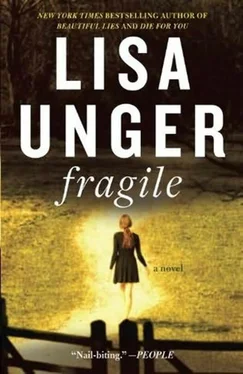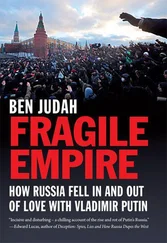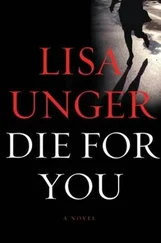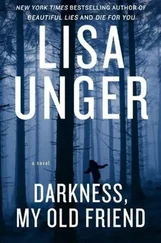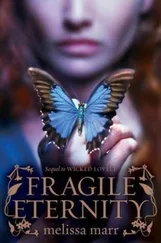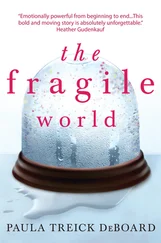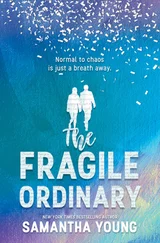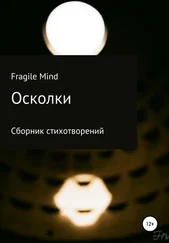“But some can,” she’d said quietly. “And how do you know the difference unless you try?”
“But why do you have to be the one to try?”
“Elizabeth,” her father had admonished. “It’s wonderful, Maggie. It’s a wonderful choice.” He’d put a comforting hand on her arm.
She hadn’t argued further with her mother. She knew it was pointless to try to bring Elizabeth around to her way of thinking. Dinner had continued with discussions about money, what there was for graduate school, what Maggie would have to earn, what loans and grants they should try to acquire. On the surface, it was all very calm, practical, optimistic. But Maggie hadn’t eaten another bite, her insides a brew of sadness and disappointment, anger at her mother for her-what was the word?-her distance , her know-it-all attitude about everything, even what Maggie chose to do with her life.
Later, after becoming a parent herself, Maggie understood her mother’s worry better. She saw it in Ricky, this desire to shelter the fragile things he found, like Charlene, and his willingness to sacrifice himself for others. He didn’t know how vulnerable he made himself. She remembered the baby squirrel he’d found in their backyard. He’d built a bed out of washcloths and tried to feed it milk from a dropper; it had died the next day. He was six at the time, and sometimes she still remembered how he’d cried, with the tragic hopelessness of the young. It had caused her a physical pain to see him so sad, because she knew how much it hurt to try to save something that could not be saved.
Now she walked over to her desk, called Henry Ivy on his cell phone, and got his voice mail.
“I had a strange call from Marshall,” she said. “Call right away. I’m really worried.”
Then she dialed Leila, Marshall’s aunt, and also got voice mail. She left a similar message. She didn’t expect to hear back, but maybe Leila would relent and send one of the boys over there. As a last resort, she looked up Angie’s number and called her, was surprised when she answered.
“This is Dr. Cooper,” Maggie said.
“I’ve been expecting your call.” Why did everyone keep saying that?
“You have?”
“I should have called you when Marshall went back to Travis. But I…,” she said, letting the sentence trail.
“I’m worried about him,” Maggie said when the other woman didn’t go on. “He seems in a very dark place.”
“He’s vile, Dr. Cooper,” she said sharply. “He’s cruel, he’s abusive. He’s Travis times one hundred. Just like Travis is worse than his father is, none of the old man’s code. Every generation, the gene gets stronger.”
Maggie was surprised into silence by the venom in her voice.
“At least the old man never hit a woman,” Angie went on. “He’d beat the crap out of Travis, but he never hit Travis’s mother or sister.”
Police Chief Crosby still lived in The Hollows, getting more cantankerous and meaner as he got older. Maggie would expect to see him at the town meeting tonight. He was always right on the spot when there was trouble, his role as town cop dying hard.
“Angie-”
“It’s our fault. I know that. Marshall saw violence-terrible, awful violence-before he was old enough to even talk. There was never a warm minute in our house. Never. And I’m sorry for that.”
It occurred to Maggie then that maybe Angie had been drinking, her words tumbling, her tone wavering between angry and maudlin.
“Has something happened between you and Marshall?”
She heard Angie start to cry.
“Has he been violent with you, Angie? We need to address it if he has, because up until now, he hasn’t been violent. And a sudden change in his behavior could suggest a crisis point.”
“I don’t want to get him in trouble, Dr. Cooper. I just want him to stay away from me. Tell him that, will you? Just tell him to stay away?”
The line went dead, and Maggie really wished people would stop hanging up on her. The whole family had a serious problem with abruptly ending unpleasant conversations. Looking at the phone still in her hand, Maggie felt her frustration reach its peak, and she started to internally back away. She was worried about Marshall, but she was equally worried about Charlene, and her own son. She thought about calling Jones, alerting him to the problems with Marshall, but everyone was so focused on Charlene at the moment that she doubted her call would amount to much. She could almost hear Jones. What do you want me to do, Mags? Bring the kid in because you had a worrying phone call? I’ve got a missing girl here .
Maggie decided to turn her focus back to the immediate crisis. She walked over to her computer and opened up Facebook, entered the log-in and password Ricky had left for her on a yellow sticky note on her computer screen. He’d wanted her to look at Charlene’s page, see the status bar update that had him so worked up.
The page loaded slowly, Maggie’s computer being old and cluttered with too many files and applications that she had neither the know-how nor the inclination to manage. Eventually, her screen filled with Charlene’s image and a list of comments from friends, all of them on-screen from that day. Where are you, girl? We’re all so worried! Hope you’re livin’ it up in NYC! You rock! I always knew you’d get out of here! Each message was accompanied by a thumbnail image of the sender, most of whom Maggie recognized, all of them vamping or clowning around for the camera. She scrolled through until she found Ricky’s image, where he was doing his best to look arty and haunted. But to Maggie, he just looked like her baby dressed up for Halloween, a little silly and self-conscious. She supposed that was why teenagers never wanted their parents around; parents only saw the children they knew, not the adults they were trying to become. Come home, Char. This is uncool, read Ricky’s message. Please.
Something caught her eye in the left-hand corner of the screen, an area labeled “Mutual Friends.” Charlene and Ricky had nineteen friends in common; Maggie clicked on the “see all” link, feeling very proud of her technical prowess. She expected to see familiar faces, and she did-Britney, Tiffany, Amber. Cursory glances at their pages showed the usual-messages from friends, favorite books and music, pictures from parties and school events. No indications of the drugs, or alcohol abuse, or teenage sexual depravity that the media would have everyone believe was going on, no seedy underbelly to Hollows High.
But many of the people listed she didn’t recognize. They looked older, though they shared Charlene and Ricky’s gothic chic. She started clicking on pictures and found musicians, nightclubbers, an East Village bar owner, the owner of a seedy-looking recording studio. She knew Ricky and Charlene had been sneaking into the city for a while now, going to shows and clubs-his guilty admission to Chuck was not exactly news to her. She’d done it herself as a kid. Were these the people they were hanging out with? They looked hard-edged and strange, too old for the scene but still hanging on. One young woman had a tattoo on her face, a trail of tears. One pale, too-thin man brooded with a cigarette dangling from his mouth, dark circles under his eyes.
Maggie leaned her head back against the leather of her chair, the brightness of the screen bothering her because of her fatigue and the headache that was increasing behind her eyes. Ricky had given her access to his account. Had he, on some level, wanted her to see these people? He couldn’t have thought she’d just look at Charlene’s page and not explore his. Hadn’t he told her that he didn’t know Char’s friends in the city? That he thought she’d been lying?
Читать дальше
